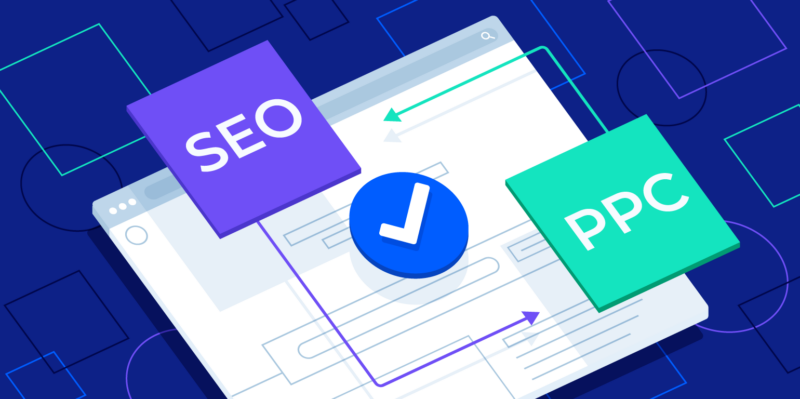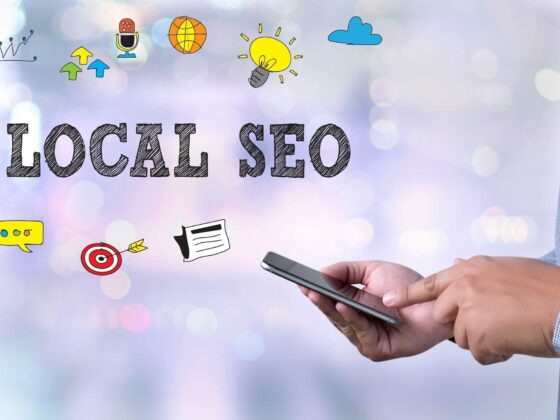When it comes to digital marketing, two popular strategies have emerged in recent years: organic search and paid search. Organic search relies on optimizing web pages for higher rankings within the results of major search engines such as Google or Bing.
Paid search, also known as PPC (pay-per-click) works by advertisers bidding on certain keywords to appear prominently among the top results when users type a query into a search engine. While both SEO and PPC are effective tactics for driving online traffic and conversions, they each have their unique advantages that must be understood before deciding which tool is best suited for your business needs.
In this article, we will explore the differences between organic vs paid searches so you can make an informed decision about how best to increase your online visibility!
Benefits of SEO in Digital Marketing

SEO has been a cornerstone of digital marketing since its emergence and for good reason. SEO provides businesses with the opportunity to increase their online visibility by improving website rankings on search engine results pages (SERPs).
This allows them to reach more potential customers who are actively searching for relevant products or services without having to pay for each impression or click like they would through paid advertising channels. Additionally, implementing effective SEO strategies can help improve user experience which encourages customers to stay longer on the site and explore other areas as well.
Ultimately, utilizing organic search tactics in your overall digital marketing strategy helps ensure that you’re reaching qualified leads while also increasing brand awareness and trust among potential customers – all at an affordable cost!
Developing an Organic Search Strategy
Developing an organic search strategy is key for any business looking to maximize its visibility in digital marketing. SEO and PPC tactics provide the basis of a successful campaign, but understanding how to optimize each approach can be tricky.
Knowing which words and phrases will attract the right customers is essential, as well as developing a content plan that puts your website at the top of searches. A smart mix between organic and paid campaigns can help you spread your message across multiple platforms while targeting specific demographics and interests.
But it’s important to remember that effective organic search takes time; creating quality content with relevant keywords will pay dividends over time, whereas PPC offers more immediate results but requires ongoing investment. Carefully strategizing which tactics to choose – based on budget, goals, and audience – will ensure maximum return from both methods combined.

Optimizing for Maximum Visibility on SERPs
Optimizing for maximum visibility on SERPs requires an understanding of the factors that influence search engine rankings. These include keyword selection and optimization, content quality, link building, page speed, and more.
By optimizing each element effectively, businesses can ensure their website stands out from the competition in search results pages. For example, selecting targeted keywords with high search volume but low competition is a great way to capture the attention of potential customers who are actively looking for what you offer.
Additionally crafting unique and informative content ensures that visitors stay engaged when they click through to your site while also improving its ranking as web crawlers identify it as having value within the topic area being discussed.
Finally making sure pages load quickly helps create a positive user experience which will encourage visitors to continue exploring other areas of your site increasing time spent there overall! With these important elements in mind, businesses have the opportunity to boost their presence online while driving qualified leads and conversions at the same time – resulting in increased success for both organic & paid campaigns.
Understanding PPC Advertising and Its Role in Digital Marketing
Pay-Per-Click (PPC) advertising is a highly effective digital marketing tool that enables businesses to target potential customers who are actively searching for their product or service. Through carefully crafting ads with relevant keywords and phrases, businesses can increase visibility on search engine results pages and other online properties while also reaching users across multiple platforms such as social media, mobile devices, videos or display networks.
Additionally, understanding bidding strategies such as cost per click (CPC), cost per impression (CPM), cost per action (CPA), etc., helps ensure that campaigns remain within budget by controlling the amount spent on each user interaction.
Pay Per Click offers immediate results but requires ongoing investment; however, when used in conjunction with organic search tactics it gives organizations an advantage over competitors who rely solely on one method of driving traffic to their website. Ultimately PPC provides measurable data which can help inform future marketing decisions leading to increased ROI over time.

Conclusion
Organic search and Paid Search are both integral components of digital marketing for any business, especially in the Real Estate SEO space. Organic search helps create a strong foundation for a website’s online presence over time while paid search gives businesses the ability to quickly drive traffic to their site when needed.
Although each has its advantages and disadvantages, incorporating both techniques into an overall strategy can help increase visibility and ROI at the same time. With careful planning, companies can use organic search and PPC in tandem to maximize effectiveness with minimal effort.


